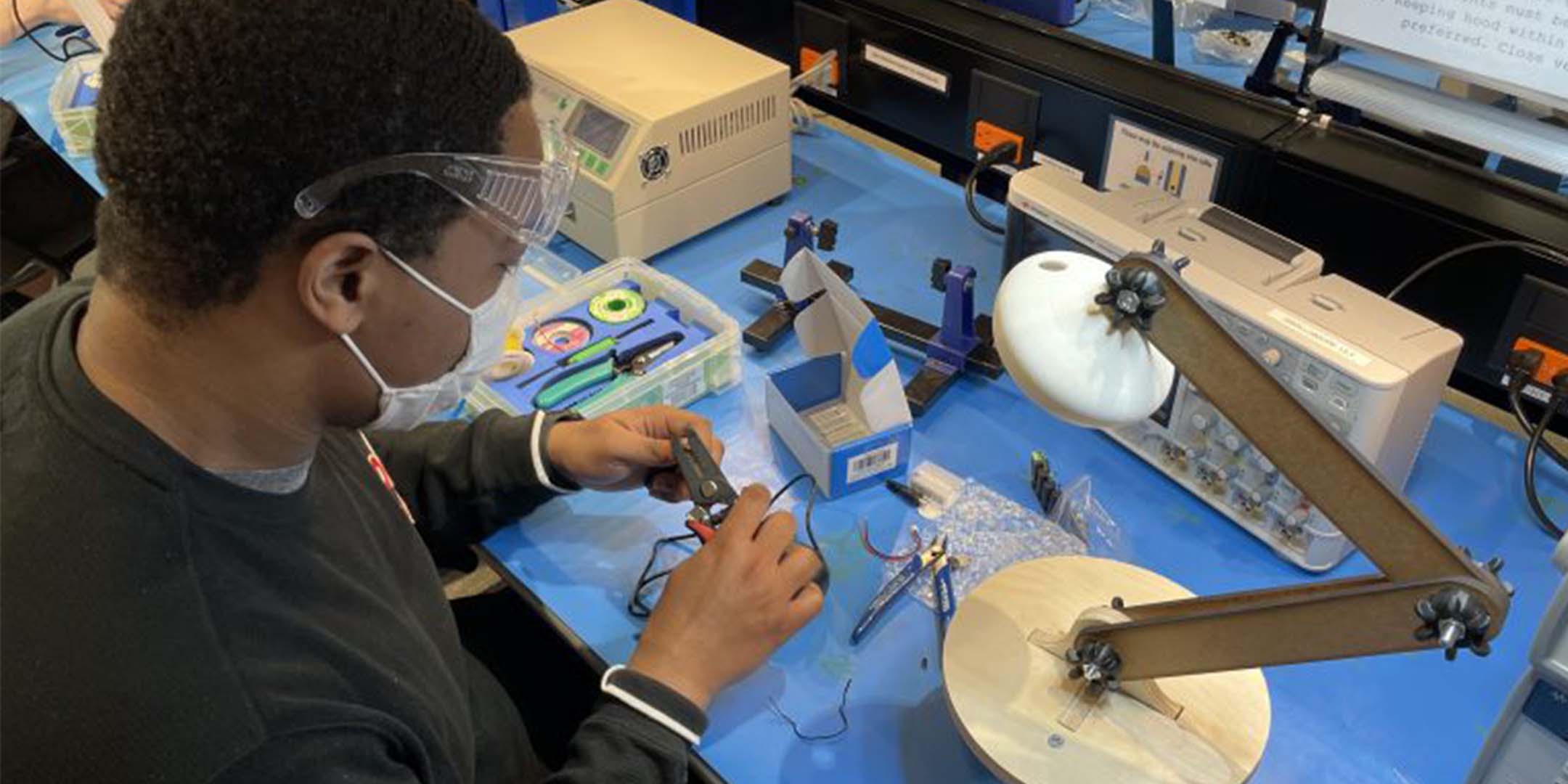
Upon entering the Makerspace, housed in the prestigious UW College of Engineering, you are greeted by a wall of windows and glass doors, offering a clear view inside its many collaborative spaces. From the virtual-reality lab to the presentation room to the 3-D printing area, each zone flows into the next in this 25,000-square-foot, open-concept facility. The Makerspace has an extensive range of prototyping equipment and labs offering fabrication, virtual reality, and precision machining capabilities.
This unique, largely student-run space was made possible by The Grainger Foundation through a transformational pledge during the All Ways Forward campaign. With a talented community of designers and builders, and the support of steadfast donors, the Makerspace is bridging the gap between theory and practice through hands-on learning and providing a center for the invention and design of innovative products.
“Having a Makerspace is creating new generations of students who will already be used to these tools and technologies,” shares Lennon Rodgers, director of the Grainger Engineering Design Innovation Lab. “It’s really about nurturing our mission of peer-to-peer learning to produce leaders in this community and this culture.”
At Makerspace — where limits don’t exist — anything is possible. When an urgent email was received from UW Health at the start of the pandemic desperately seeking 1,000 face shields, a team of engineers from the Makerspace answered the call, and a mere nine days later, all 1,000 were delivered. Leveraging the strengths of the university, Badger Shield was efficiently crafted, prototyped, and tested by the gifted engineers at Makerspace, resulting in an open-source design ready to be manufactured on a large scale. More than 20 million Badger Shields have been produced around the world since then, protecting medical professionals and patients alike.
Donor contributions are also aiding the college in focusing on recruiting and retaining leading engineering faculty and expanding its student body to meet the growing industry demand for more engineers. Through additional professorships, which will support high-performing faculty leaders and an additional 1,000 undergraduates, donor support further enhances the college’s ability to attract the highest quality and most diverse pool of faculty and students in the nation.
